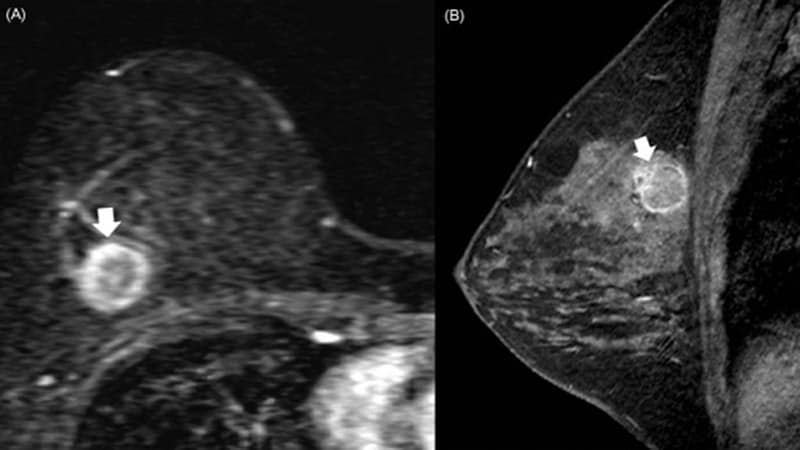ASUNCIÓN, PARAGUAY — The Lancet Diabetes & Endocrinology's Commission for the Definition and Diagnosis of Clinical Obesity will soon publish criteria for distinguishing between clinical obesity and other preclinical phases. The criteria are intended to limit the negative connotations and misunderstandings associated with the word obesity and to clearly convey the idea that it is a disease and not just a condition that increases the risk for other pathologies.
One of the two Latin American experts on the 60-member commission, Ricardo Cohen, MD, PhD, coordinator of the Obesity and Diabetes Center at the Oswaldo Cruz German Hospital in São Paulo, Brazil, discussed this effort with the Medscape Spanish edition.
The proposal being finalized would acknowledge a preclinical stage of obesity characterized by alterations in cells or tissues that lead to changes in organ structure, but not function. This stage can be measured by body mass index (BMI) or waist circumference.
The clinical stage occurs when "obesity already affects [the function of] organs, tissues, and functions like mobility. Here, it is a disease per se. And an active disease requires treatment," said Cohen. The health risks associated with excess adiposity have already materialized and can be objectively documented through specific signs and symptoms.
Various experts from Latin America who participated in the XV Congress of the Latin American Obesity Societies (FLASO) and II Paraguayan Obesity Congress expressed to Medscape Medical News their reservations about the proposed name change and its practical effects. They highlighted the pros and cons of various terminologies that had been considered in recent years.
"Stigma undoubtedly exists. There's also no doubt that this stigma and daily pressure on a person's self-esteem influence behavior and condition a poor future clinical outcome because they promote denial of the disease. Healthcare professionals can make these mistakes. But I'm not sure that changing the name of a known disease will make a difference," said Rafael Figueredo Grijalba, MD, president of FLASO and director of the Nutrition program at the Faculty of Health Sciences of the Nuestra Señora de la Asunción Catholic University in Paraguay.
Spotlight on Adiposity
An alternative term for obesity proposed in 2016 by what is now the American Association of Clinical Endocrinology and by the American College of Endocrinology is "adiposity-based chronic disease (ABCD)." This designation "is on the right track," said Violeta Jiménez, MD, internal medicine and endocrinology specialist at the Clinical Hospital of the National University of Asunción and the Comprehensive Diabetes Care Network of the Paraguay Social Security Institute.
The word obese is perceived as an insult, and the health impact of obesity is related to the quantity, distribution, and function of adipose tissue, said Jiménez. The BMI, the most used parameter in practice to determine overweight and obesity, "does not predict excess adiposity or determine a disease here and now, just as waist circumference does not confirm the condition."
Will the public be attracted to ABCD? What disease do these initials refer to, asked Jiménez. "What I like about the term ABCD is that it is not solely based on weight. It brings up the issue that a person who may not have obesity by BMI has adiposity and therefore has a disease brewing inside them."
"Any obesity denomination is useful as long as the impact of comorbidities is taken into account, as well as the fact that it is not an aesthetic problem and treatment will be escalated aiming to benefit not only weight loss but also comorbidities," said Paul Camperos Sánchez, MD, internal medicine and endocrinology specialist and head of research at La Trinidad Teaching Medical Center in Caracas, Venezuela, and former president of the Venezuelan Association for the Study of Obesity.
Camperos Sánchez added that the classification of overweight and obesity into grades on the basis of BMI, which is recognized by the World Health Organization, "is the most known and for me remains the most comfortable. I will accept any other approach, but in my clinical practice, I continue to do it this way."
Fundamentally, knowledge can reduce social stigma and even prejudice from the medical community itself. "We must be respectful and compassionate and understand well what we are treating and the best way to approach each patient with realistic expectations. Evaluate whether, in addition to medication or intensive lifestyle changes, behavioral interventions or physiotherapy are required. If you don't manage it well and find it challenging, perhaps that's why we see so much stigmatization or humiliation of the patient. And that has nothing to do with the name [of the disease]," said Camperos Sánchez.
'Biological Injustices'
Julio Montero, MD, nutritionist, president of the Argentine Society of Obesity and Eating Disorders, and former president of FLASO, told Medscape Medical News that the topic of nomenclatures "provides a lot of grounds for debate," but he prefers the term "clinical obesity" because it has a medical meaning, is appropriate for statistical purposes, better conveys the concept of obesity as a disease, and distinguishes patients who have high weight or a spherical figure but may be free of weight-dependent conditions.
"Clinical obesity suggests that it is a person with high weight who has health problems and life expectancy issues related to excessive corpulence (weight-fat). The addition of the adjective clinical suggests that the patient has been evaluated by phenotype, fat distribution, hypertension, blood glucose, triglycerides, apnea, cardiac dilation, and mechanical problems, and based on that analysis, the diagnosis has been made," said Montero.
Other positive aspects of the designation include not assuming that comorbidities are a direct consequence of adipose tissue accumulation because "lean mass often increases in patients with obesity, and diet and sedentary lifestyle also have an influence" nor does the term exclude people with central obesity. On the other hand, it does not propose a specific weight or fat that defines the disease, just like BMI does (which defines obesity but not its clinical consequences).
Regarding the proposed term ABCD, Montero pointed out that it focuses the diagnosis on the concept that adipose fat and adipocyte function are protagonists of the disease in question, even though there are chronic metabolic diseases like gout, porphyrias, and type 1 diabetes that do not depend on adiposity.
"ABCD also involves some degree of biological injustice, since femorogluteal adiposity (aside from aesthetic problems and excluding possible mechanical effects) is normal and healthy during pregnancy, lactation, growth, or situations of food scarcity risk, among others. Besides, it is an expression that is difficult to interpret for the untrained professional and even more so for communication to the population," Montero concluded.
Cohen, Figueredo Grijalba, Jiménez, Camperos Sánchez, and Montero declared no relevant financial conflicts of interest.
This story was translated from the Medscape Spanish edition using several editorial tools, including AI, as part of the process. Human editors reviewed this content before publication.

.webp) 2 weeks ago
6
2 weeks ago
6

























 English (US)
English (US)